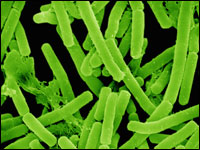 Faculty members from Hamdard University in New Delhi, India have a review of Ayurveda on Medscape.
Faculty members from Hamdard University in New Delhi, India have a review of Ayurveda on Medscape.
There’s evidence that many Ayurveda medicines should be effective (ie, antibacterial and anti-inflammatory properties), but let’s focus on those with studies in people with acne.
Tree oil
- 5% tea tree oil gel was better tolerated than 5% benzoyl peroxide lotion.
- Tea tree oil is associated with development of linear IgA disease (blistering under the skin) when applied topically.
Aloe barbendis, Azardirachta indic, Curcuma longo, Hemidesmus indicus, Terminalia chebula, and Withania somnifera
- The combined treatment using tablet and topical formulations showed better results than the tablet alone.
- Tablet and cream showed better results than tablet and gel therapy.
Clarina cream and purin tablet
- The combination was effective for mild and moderate acne with papules and comedones.
- Also effective for severe acne with papules and pustules.
- No significant adverse reactions.
Ocimum gratissimum
- The topical preparation containing 2% ocimum oil in cetomacrogol blend base was more effective and well-tolerated vs benzoyl peroxide 10% lotion.
- Preparations containing 5% oil produced skin irritation.
Aloe gel
- 2% ocimum oil in 50% aloe gel was effective acne treatment and recommended for not less then 7 days for effective treatment of acne vulgaris.
- Adverse effects included mild, dose dependent irritation.
- When administered with insulin or oral antidiabetic drugs, aloe gel produced additive blood sugar lowering effects.
- Aloe probably increases skin penetration.
The bottom line?
Mainstream pharmacologic treatments for acne are effective. In the lab, these and many other herbals have shown antimicrobial activity against the bacteria, Propionibacterium acnes — thus, suggesting effectiveness.
Effectiveness is expected, better tolerability is the area where improvement in acne treatment is needed
8/11/08 21:37 JR